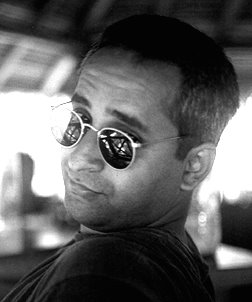Taking a stand?
Oct 27
They say you can’t fool all the people all the time. There’s an institution called IIPM, in India, which has learnt this the hard way. Not satisfied with fooling some people some of the time, it chose to enter into a fairly public debate with a bunch of bloggers and journalists in what can only be termed, in hindsight, as marketing suicide. Probably all the more heinous a crime for an organization that purports to be a business school.
To cut a long story short, here is a telegraphic outline of the plot.
- IIPM operates for some time using dubious ads with a lot of small print and safe in the glow of typical public ignorance. (We’ve all seen the cherubic pictures of Arindam Choudhury and assumed that he’s yet another of the new breed of Indian management gurus, who seem to be carving out a strong furrow across academia across the world.)
- JAM – a magazine aimed at students and run by Rashmi – from the IIMA batch of 1993 investigates IIPM and reports that a lot of their advertising claims are false or misleading.
IIPM launches a broadside offensive against JAM – including appearing at the JAM office, threatening and intimidating individual people. They threaten Gaurav one of the JAM editors and use pressure through his employers. Gaurav chooses between his integrity and his job and surprise surprise, jettisons the latter. - IIPM (and its motley band of loyalists) also launch a ham handed, naïve and often despicably sick attack on the JAM editors, through personal blogs of the concerned individuals. While at it, it manages to malign IIMA and IIMs in general, bloggers across the board and journalists at large. You can only stand back and watch the impending carnage at this point, much like the penultimate scene of an action flick where the villain is on the verge of coming undone.
- Mainstream magazines pick up the story, conduct their own investigation and conclude that (a) IIPM makes misleading and potentially fraudulent claims on their marketing material (b) that IIPM does not come through with any real data to counter the claims made about their practices and (c) that much of the IIPM eco-system is self-fulfilling. You graduate from IIPM, get a teaching job there, research there, get recognized there. A classic closed loop.
Some of the most damning evidence unearthed by BW (Oct 31, 2005)
- IIPM is not recognized by AICTE, UGC or any of the other Indian educational bodies. This fact is disclosed in small print under the marketing slogans.
- The IIPM advertises world class infrastructure which is present in only one centre, the other 6 centres are apparently “branches”
- The faculty is not as advertised
- the “recruiters” are just companies where IIPM graduates happen to work, and not companies that come to the campus to recruit.
If it looks like a scam and smells like a scam, well, you know what to make of it. The reality is that in the mad rush of education, world class dreams and the eternal motion of career progression, many people are probably getting taken in, finding out some 6 lakh rupees later that they are not aspirants to global fame, but victims of an elaborate set-up.
What bothers me… no that’s too mild, what pisses me off most of all is of course the passing shots these so called management institutes take at the IIMS. According to IIPM correspondence its all about the “inferiority complex of pampered IIM students”. Now we all know us IIM students often need taking down a peg or two. But let it never be said that the IIMS (and indeed all of India’s recognized and leading business schools) haven’t earned the right to be where they are. And we certainly don’t need an organization with all the marketing and PR nous of a schoolyard bully to tell us how to do things.
Right, having got my personal grouse out of the way, let me ask some serious questions:
- At a time when Indian managers across the world are painstakingly building a reputation as professionals, why is this kind of obviously porous prevarication allowed to exist?
- What exactly are the standards in advertising when it comes to education? Are there any? Is there watchdog? What are the other institutes doing about this?
Actually, there are many, many questions, and indeed, there will be time to ask them, but of note is a small but significant victory for both free media and of the public voice. If this is a sign of things to come, we have a bright future!



0 Comments:
Post a Comment
<< Home